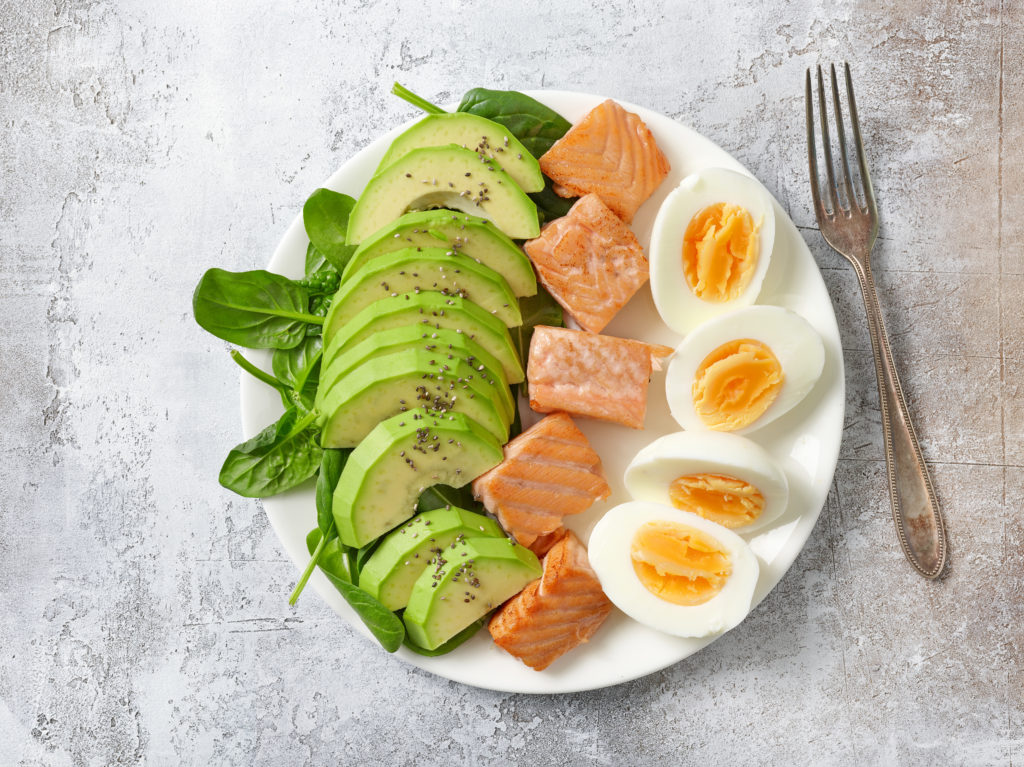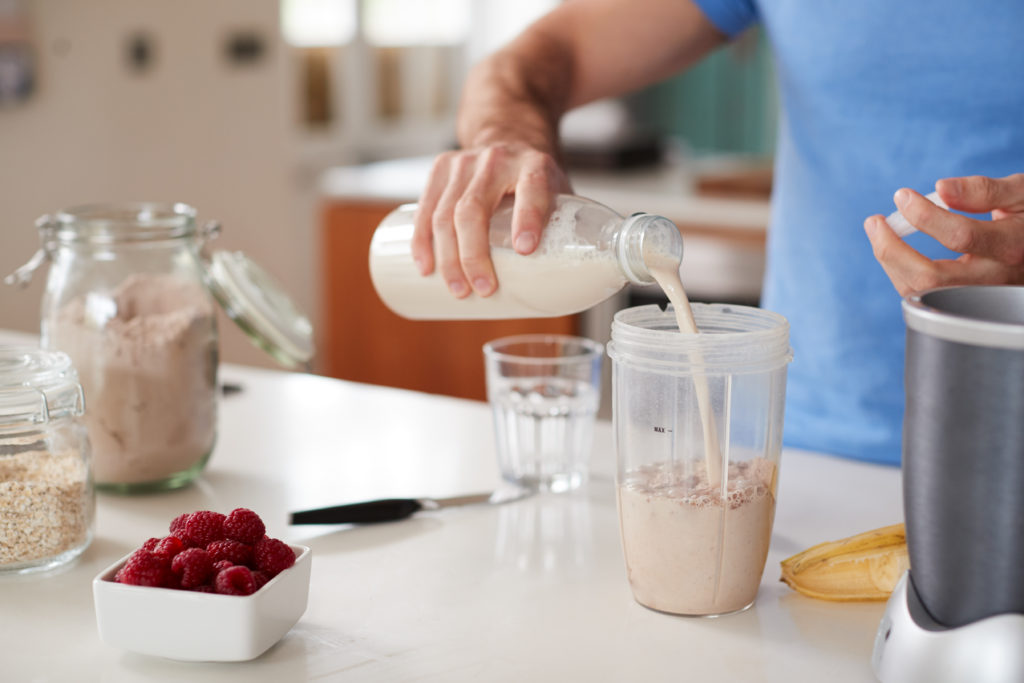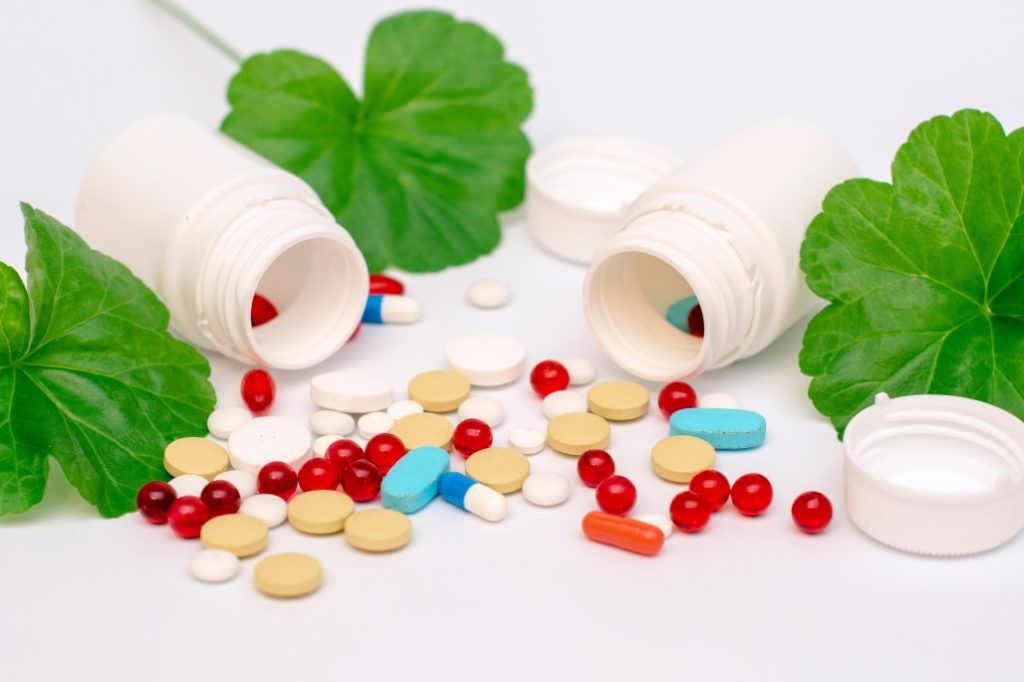

Sports Nutrition
Sports nutrition is the study and practice of nutrition and diet with regards to improving anyone’s athletic performance. Sports Nutrition focuses its studies on the type, as well as the quantity of fluids and food taken by an athlete.
Sports nutrition packaging is rapidly moving from the niche markets of gyms and health food stores to mass-market outlets. Driven by new ingredients, packaging formats and changing consumer trends, sports nutrition is one of the fastest growing market segments.

Dietary Supplements
Dietary supplements are substances you might use to add nutrients to your diet or to lower your risk of health problems. Dietary supplements come in the form of pills, capsules, powders, gel tabs, extracts, or liquids. They might contain vitamins, minerals, fiber, amino acids, herbs or other plants, or enzymes.
Global dietary supplements market is projected to grow with a CAGR of 6.9%, during the forecast period (2020-2025). The dietary supplements market is preliminarily driven by the paradigm shift toward preventive health management practices, amid rising healthcare costs and increasing burden of lifestyle diseases.

Nutraceuticals
Nutraceutical products are foods or fortified food products that not only supplements the diet but also assists in treating or preventing disease as well as providing medical benefits.
Nutraceuticals range from specific nutrients, to dietary supplements, herbal products and processed foods and include beta-carotene, fish oil, garlic, green tea, oat bran, olive oil and various herbs.
Global nutraceuticals market size is expected to reach $302,306 million by 2022 from $184,092 million in 2015 with a CAGR of 7.04% from 2016 to 2022. The global nutraceuticals product market holds a substantial scope for growth; however, its contribution to the global market is projected to increase significantly within the next six years.

Keto Products
The ketogenic diet is a very low-carb, high-fat diet that involves drastically reducing carbohydrate intake and replacing it with fat. This reduction in carbs puts your body into a metabolic state called ketosis. Ketosis is a natural metabolic state in which fat provides most of the fuel for the body. It occurs when there is limited access to glucose (blood sugar), which is the preferred fuel source for many cells in the body.
The ketogenic diet has gained considerable prominence in recent years, with the rising demand for keto-friendly options at restaurants and eateries. The keto diet market size has the potential to grow by USD 1.18 billion during 2020-2024, and the market’s growth momentum will accelerate during the forecast period.

Nutritional Supplements
Nutritional supplements are any dietary supplement that is intended to provide nutrients that may otherwise not be consumed in sufficient quantities; for example, vitamins, minerals, proteins, amino acids or other nutritional substances. Products are usually ingested in capsule, tablet or liquid form. Nutritional supplements may include vitamins, minerals, bars, and energy drinks or sports nutrition products to enhance performance.
The global nutritional supplement market is expected to expand at a CAGR of 10.01%, leading to a global revenue of USD 245.43Bn by 2023. The nutritional supplement market is segmented on the type of ingredients (vitamins, proteins, amino acids, enzymes and botanicals) and end users (infants and adults).

Protein Powders
Protein powder is a popular nutritional supplement. Protein powder has various benefits such as body building, boosts energy, helps the body to recover from an injury, tones the muscles and builds lean mass. These benefits have prompted consumers to consume protein powder on a daily basis. All these advantages make the protein powder more popular all around the world. Demand for protein powder is high among athletes.
Protein powders are the biggest-selling supplement on the market today. After all, it takes a great deal of protein to build muscle and powder makes for a convenient way to get in the extra protein you need, especially when you need it most—around workouts. Study after study confirms that the use of protein powders, particularly those containing whey, along with a weight-training program, enhances muscle growth and strength gains.

Weight Loss Supplement
Weight Loss Supplement are the type of supplement used to reduce body weight by increasing the metabolism and decreasing appetite. These supplements are available in various formulations such as powder, capsule, tablets, and meal replacement liquids.
Weight Loss Supplements in the form of soft gel/pills are projected to surpass US$ 18.5M in revenue by the end of 2026. The weight loss dietary supplements in the form of powder are also likely to witness robust growth during 2020-2026.

Pre-Workouts Supplements “Pre-Workouts”
Pre-Workout Supplements are multi-ingredient dietary formulas designed to boost energy and athletic performance. The idea of pre-workout nutrition is to give your body what it needs to perform at maximum intensity and prepare your muscles for growth. They’re typically a powdered substance that you mix in water and drink before exercise. While countless formulas exist, there’s little consistency in terms of ingredients. Amino acids, B vitamins, caffeine, creatine, and artificial sweeteners are often included, but quantities can vary widely depending on the brand.

Powdered Food Mixes
Dry mixes are food ingredients ready mix that is mostly used in the food, bakery, and confectionary for the preparation of the food products. Dry mixes comprise of different grain blends, spices mixes, baking mix, curry seasoning mix and other mixes used in the application of the food and beverages. Dry mixes can be used to make a wide variety of food products from soups to baked goods.
Baking powder and mixes market is expected to reach USD 8.3 billion by 2027 growing at a growth rate of 6.10% in the forecast period 2020 to 2027. Increasing demand for frozen bakery product is expected to create new opportunity for the market.

Powdered Drink Mixes
A drink mix, or powdered drink mix is a powder designed to mix usually with water to produce a beverage resembling fruit juice or soda in flavor. Another type of drink mix is represented by products that must be mixed into milk. Some of the Drink Mixes include vitamins or other nutrients. The products are variously marketed to children, athletes, bodybuilders, dieters, or as a vitamin supplement. Some brands are only sold as drink mixes, while some beverage companies produce powdered versions of their products.
New flavor technologies and flavor fusions continue to grow this mature market. Currently growing at CAGR of 2.5%, the $2.1B powdered drink mix market includes a wide range of brands and products.

Plant Based Supplements
Plant-based supplements are made from fruits, vegetables, nuts, seeds, spices, bark, flowers, leaves, and other botanical ingredients. The exact source depends on which vitamin or mineral is needed. Typically, the process starts with a plant that is already naturally high in the desired nutrient. From there the desired nutrients are extracted to create a plant-based supplement that can provide a wide variety of vitamins and minerals. The basic principles of a whole-foods, plant-based diet are as follows: Emphasizes whole, minimally processed foods. Limits or avoids animal products. Focuses on plants, including vegetables, fruits, whole grains, legumes, seeds and nuts, which should make up the majority of what you eat.
The global plant based protein supplement market size is expected to reach USD 7.70 billion by 2025, according to a new report by Grand View Research, Inc. It is anticipated to expand at a CAGR of 7.9% during the forecast period.

Vitamins
People meet their daily nutritional needs through healthy eating, but many don’t get all the vitamins and minerals their bodies need from the foods they eat. Multivitamins and other supplements can help make up the difference and prevent vitamin and mineral deficiencies. They can also provide more nutrients than diet alone, which may help to protect against or manage certain diseases.
The global market for Vitamins is projected to reach US $9.3B by 2020, driven by rising health consciousness among the aging population, and adoption of preventive healthcare practices.